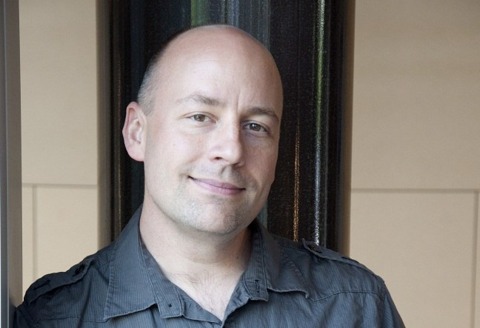Epic confirms five new games in development
GDC Europe 2011: Studio president Michael Capps delivers address covering the history of his company and the lessons learned over two decades.
Who was there: Michael Capps, president of Epic Games, talked about the history of his company and the lessons learned from its past successes and failures. He also noted that Epic Games now has five new games at "various stages of prototyping and development" and that the company has a renewed interest in PC development going forward.

What he talked about:In 1991, a college student named Tim Sweeney started a little company called Epic MegaGames, "The New Name in Computer Entertainment," in his parents' basement. The company's first game was a simple puzzle game titled ZZT. While the game itself was fairly unremarkable, the fact that it included a built-in editor was groundbreaking and propelled the game's popularity. The lesson learned there is one that the company still uses today: Give away the game tools. In 1991, it was a simple game editor; today, it's a multimillion dollar "Make Something Unreal" contest.
Between 1996 and 1998, the company was growing steadily and had united under one roof. It was also quickly learning that utilizing cutting-edge technology attracted a lot of publicity from the video games media. Therefore, it started working very closely with hardware manufactures. Doing so gave the manufacturers more exposure for their hardware, while Epic learned how to get the best performance from that hardware.
In 1999, Unreal Tournament was released, but not before a six month delay thanks to a publisher dispute. However, during the six months, "all the cool stuff" was added to the game, including alt-fire for the weapons and the iconic Unreal announcer voice. Capps stressed here the importance of iteration, not just in game design but also in company methodology. "If we hadn't learned this lesson, we wouldn't be here today," he said.
By 2003, some big changes were taking place at Epic. Up until this point, the developer had primarily been a PC company, but the impact of piracy was taking its toll and making the platform less and less attractive. In response, Epic turned to consoles. Gears of War was already in production, so the developer decided to partner with Microsoft for a mutually beneficial partnership--just like it had with other hardware manufacturers back in the late '90s.
To date, the Gears of War series has been very successful for both Epic and Microsoft. And if the response to the recent beta is any indication, Gears of War 3 will be another hit. What happened after that beta, Capps said, was that everyone found a little thing to change to make the experience better. There were a lot of late nights that had nothing to do with scheduling; just people who wanted to fix little things and improve the game, he added.
Looking ahead, Epic is now hard at work finishing Gears of War 3, as well as the Unreal Engine 4. Capps also confirmed that "We have five new games at various stages of prototyping and development," though he wasn't ready to offer any hard details just yet. What he could say was that he's glad to be targeting the PC again as a primary platform, and not just for ports.
Quote: "Piracy hurts us, and it hurts us a lot."--Michael Capps, on developing for the PC.
Takeaway: Every company needs storytellers--people who know about its heritage and its development from the very beginning. Those people can help ensure that the lessons learned though past mistakes and successes aren't forgotten in the future. Capps urged developers to watch for and learn to recognize defining moments in their company's history and use those moments to help define and build their own company culture.
Got a news tip or want to contact us directly? Email news@gamespot.com
Join the conversation